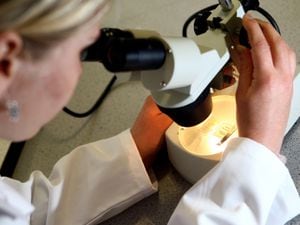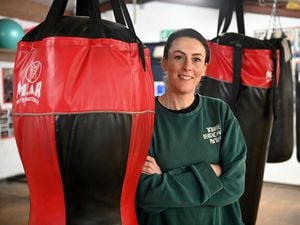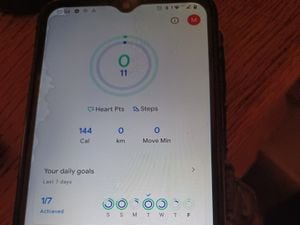Third of eligible women missed a smear test in first year of pandemic
Nearly a third of eligible women across the region were found to have missed a smear test in the first year of the coronavirus pandemic.

Figures released by cancer charity Jo's Cervical Cancer Trust have shown that more than 157,000 women across the Black Country and Staffordshire missed out on the potential life-saving programme, when invites to screenings were temporarily suspended and appointments delayed.
Jo's Cervical Cancer Trust said a national drop in cervical screening combined with "unprecedented strain" on the health service could lead to more women being diagnosed with preventable cancers.
Across the region, 157,013 women aged between 25 and 64 missed a test, which is intended to detect abnormalities within the cervix, during 2020/21, with the percentage of numbers screened down from 2019/20.
In Walsall, 71 per cent of those eligible were screened, down from 73 per cent, with an estimated 21,393 women in the area missing a test.
In Sandwell, 66 per cent of those eligible were screened, down from 69 per cent, with an estimated 31,665 women in the area missing a test.
In Staffordshire, 74 per cent of those eligible were screened, down from 76 per cent, with an estimated 56,465 women in the area missing a test.
In Wolverhampton, 66 per cent of those eligible were screened, down from 69 per cent, with an estimated 24,923 women in the area missing a test.
In Dudley, 72 per cent of those eligible were screened, down from 74 per cent, with an estimated 22,567 women in the area missing a test.
Research by the charity found that many women were also put off attending their screenings due to concerns about their risk of catching coronavirus during the appointment.
Samantha Dixon, the charity's chief executive, said the national drop in screenings was not unexpected in light of the pandemic but said it remained a worry.
She said: "Our health service is under unprecedented strain at the moment and facing a long winter.
"We cannot afford to let coverage slip further.
"It will only lead to even more cancers that could have been prevented.
"In some areas coverage is lower than one in two and that should be ringing alarm bells."
The research also found that uptake across the region was higher for older women aged between 50 and 64 than for women aged between 25 and 49.
On average, 73 per cent of women aged between 50 and 64 received a smear test, compared to 69 per cent of women aged between 25 and 49.





